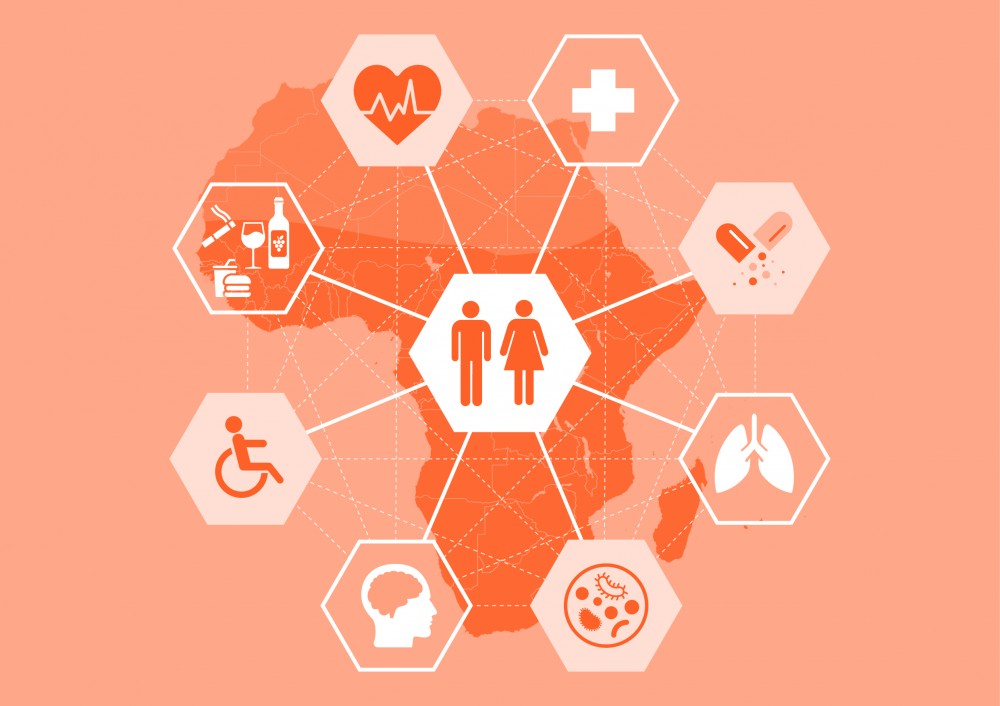Today, we are delighted to publish our report “Improving the prevention and management of multimorbidity in sub-Saharan Africa”, from our workshop with the Academy of Sciences South Africa in September 2019.

As life expectancy increases, multimorbidity – the simultaneous presence of two or more chronic health conditions – is becoming increasingly common globally. The relationship between the conditions may be by chance, there may be particular risk factors that increase the risk of multiple diseases, or one condition (or its treatment) may predispose a person to another condition.
Notably, economic and social development has led to the widespread adoption of westernised lifestyles and a burgeoning of non-communicable diseases (NCDs) in sub-Saharan Africa – the NCD burden in the region increased by 67% between 1990 and 2017. Moreover, with a high infectious disease burden, greater life expectancy, and a population boom, multimorbidity threatens to be a huge issue for the region in the future.
Multimorbidity represents a challenge to health systems and to research, both of which are typically oriented around individual conditions. Patients may end up seeking care from a range of specialists, and care is not necessarily coordinated or delivered in a patient-centred way.
In 2016, the Academy of Medical Sciences established a working group, led by Professor Stephen MacMahon FMedSci, to develop a clearer global picture of multimorbidity and a research agenda to address it. The working group published a highly influential report in 2018, which included six strategic research priorities.
The Academy of Medical Sciences’ programme of work in multimorbidity has included further workshops exploring more detailed questions, including multimorbidity in BRICS countries (Brazil, Russia, India, China and South Africa). A workshop held in September 2019, jointly organised by the Academy of Medical Sciences and the Academy of Science of South Africa, provided an opportunity to discuss the specific multimorbidity issues facing sub-Saharan Africa.
The main objectives of the workshop were to review the evidence on the prevention and management of multimorbidity in sub-Saharan Africa, to identify key gaps in knowledge and how they might be filled, and to discuss research initiatives successfully addressing prevention and management.
In breakout groups and plenary sessions, participants discussed key features of multimorbidity in sub-Saharan Africa and identified a range of multimorbidity research priorities for the region, as well as enablers that could advance multimorbidity research more generally.
During the meeting, it was clear that Sub-Saharan Africa is making significant progress in improving the health of its people. Great strides have been made in combatting infectious disease, enhancing access to antiretrovirals, and in improving maternal and child health. As a result, life expectancy has been improving markedly.
However, the growing adoption of westernised lifestyles is driving a new NCD epidemic. With its high infectious disease burden, people living longer, and a growing population, the region will face a huge challenge from multimorbidity in the near future.
Nevertheless, this may be an opportune moment to highlight the current and future challenges presented by multimorbidity. A global focus on primary healthcare and universal health coverage is encouraging national governments to consider the health needs of their populations and how health systems can be efficiently organised in patient-centric ways. Multimorbidity considerations should therefore be at the heart of initiatives to strengthen health systems.
